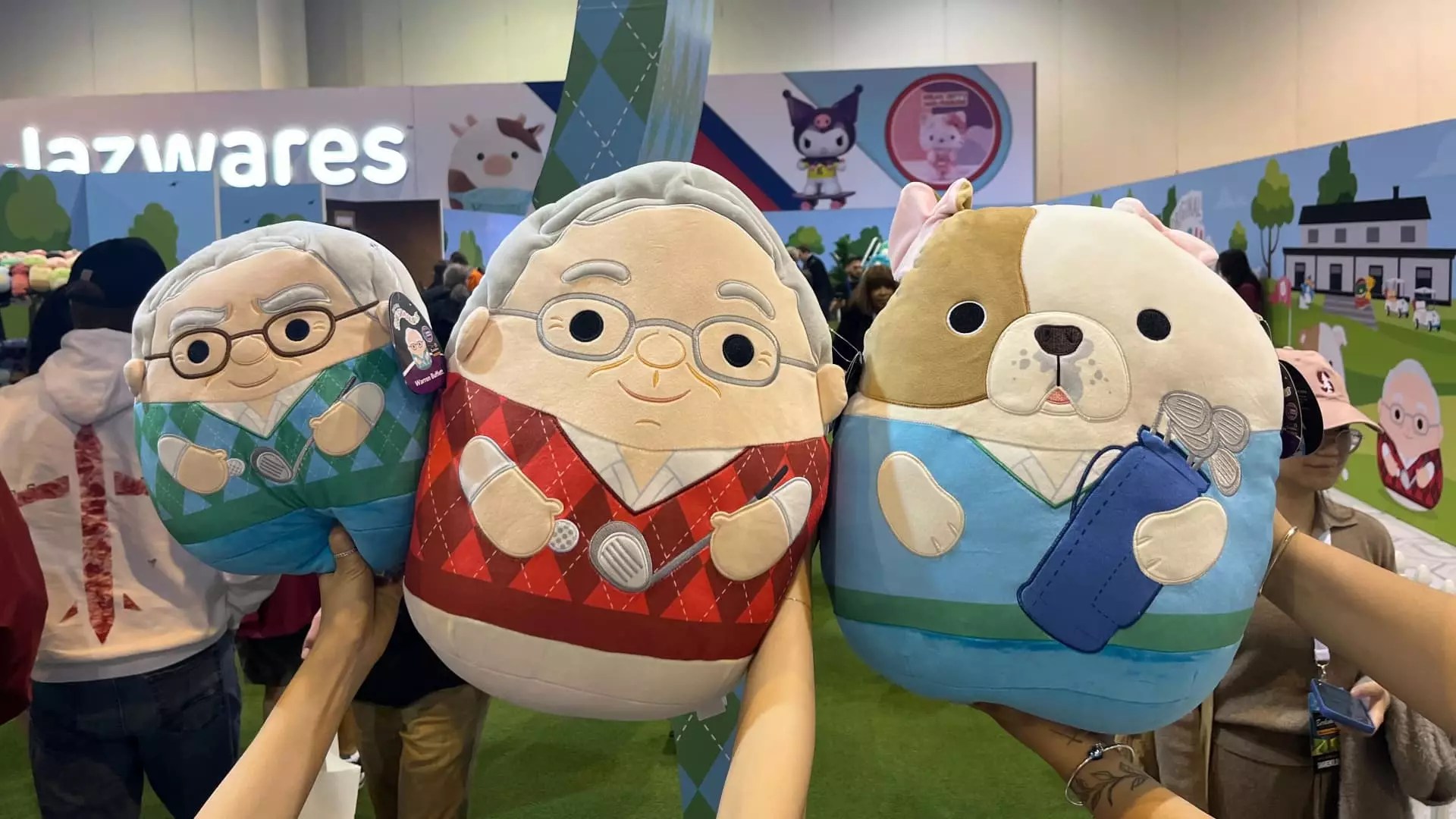The Berkshire Hathaway annual meeting, often affectionately referred to as the “Woodstock for Capitalists,” offers shareholders more than just stockholder updates. This year, the event has ascended to new heights of interactivity with its bustling “Berkshire Bazaar of Bargains.” More than a mere shopping expo, it is a unique convergence where commerce meets community, reflecting the diverse portfolio of Warren Buffett’s empire. The expansive 20,000 square feet of the CHI Health Center buzzed with excitement, transforming a sometimes dry shareholder meeting into something phenomenal and engaging.
From specialized apparel to delightful sweets, the bazaar serves as a microcosm of the conglomerate’s extensive portfolio. Amidst the cacophony of eager attendees, the visuals alone are striking—booths bursting with products ranging from Brooks Sports wear to See’s Candies. Given Buffett’s reputation as a homegrown success story, the bazaar reflects a careful curation of goods that resonate not only with shareholder interests but also with familial values. It is a refreshing residential gathering for those armed with sharp mindsets focused on investing and community.
Squishmallows: A Cultural Phenomenon
Among the myriad of products showcased at the bazaar, the Squishmallows, particularly those modeled after Buffett himself, have emerged as the undeniable crowd-pleasers. The plush toys are a testament to modern marketing tactics that blend nostalgia and novelty, pushing boundaries even further than traditional products. According to reports, over 1,000 Squishmallows were snapped up per hour—a striking figure that indicates consumer behavior increasingly inclined toward personal nostalgia and whimsy, especially in a post-pandemic world.
The fact that a simple plush toy holds such significance raises questions about our value systems. We live in an era where the materialistic often intertwines with emotional attachment. Squishmallows, born out of the acquisition of Jazwares, encapsulate this zeitgeist. Is it a mere doll, or is it an emblem of comfort and familiarity in a rapidly changing world? Profitability is important, but the underlying emotional connection these toys create suggests that product-market fit today requires more than just a good price—it demands a story.
Buffett’s Wisdom: A Lesson Beyond Profits
Warren Buffett’s annual address always draws considerable attention, and his sage words can sink deep beyond the complex financial vernacular. This year, his comments concerning economic volatility and tariffs resonate with more than just financial implications—they touch on domestic anxieties that affect every American household. The current economic landscape demands leaders like Buffett who can provide clarity instead of mere commentary.
For a center-right liberal like myself, Buffett embodies a blend of pragmatism and optimism. His investor’s mind encourages personal responsibility and fiscal conservatism while advocating for social causes that uplift communities, which is crucial in our current political climate. By addressing how external factors like tariffs may inflate prices for consumers, he highlights an important consideration amid economic discussions—the impact on everyday lives, especially for working-class families.
Innovation Meets Charity
At this year’s bazaar, corporate responsibility took center stage. Not only are attendees indulging in various products, but they are doing so with the twin goals of enjoyment and benefitting charitable causes. The auction of limited-edition books, signed by Buffett and author Carrie Sova, specifically benefits the Stephen Center, a charity for homeless youth and adults in South Omaha. This innovative blending of commerce and charity illustrates how enterprises can drive change while remaining profitable.
Moreover, the inclusion of fun elements like the gigantic claw machine, where proceeds benefit the Hope Center for Kids, highlights a trend that reflects a generation seeking more meaningful engagement with companies. Perhaps this is a much-needed reminder of corporate identity—not only as profit-driven entities but as pillars of the community.
A Cultural Shifts in Consumer Preferences
The overall experience at the bazaar conveys a significant cultural shift in consumer preference as well. With goods ranging from healthcare-oriented products to toys and treats, we are witnessing a remapping of both purchase motivations and anticipated products. Consumers today crave experiences, engagement, and emotional connections rather than just mere transactions.
As shareholders navigate this space, the bazaar not only reflects the multifaceted nature of Berkshire Hathaway but also serves as a platform for collective identity. Attendees leave with not just branded merchandise but with a sense of belonging in something greater—that they are part of an intricate tapestry woven by a successful midwestern enterprise emphasizing ethical and communal values.
Embodying the essence of liberal thought, the Berkshire Bazaar operates as both a commercial spectacle and a herald of the next evolution of corporate responsibility while significantly emphasizing its commitment to the people it serves.


Leave a Reply